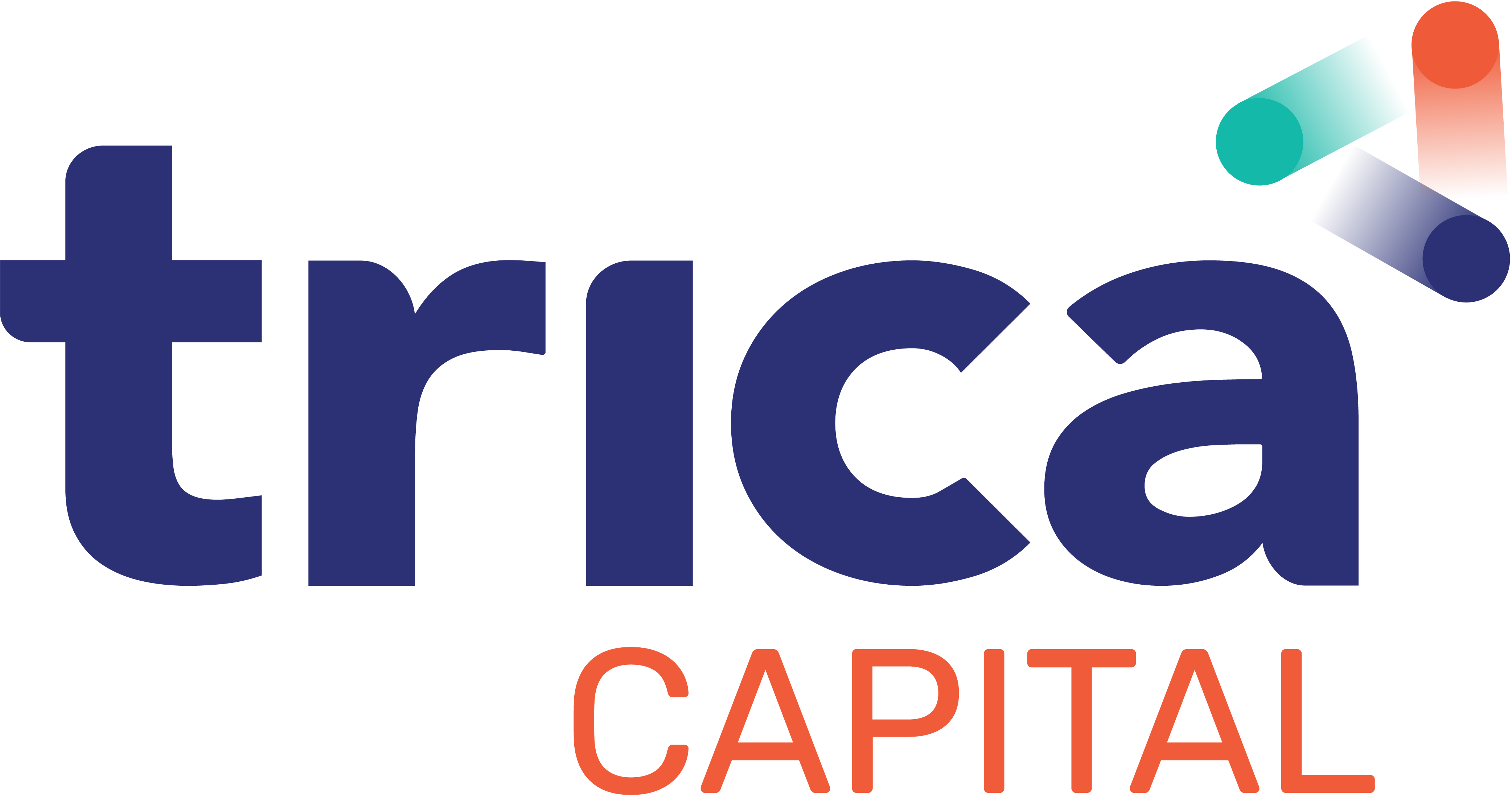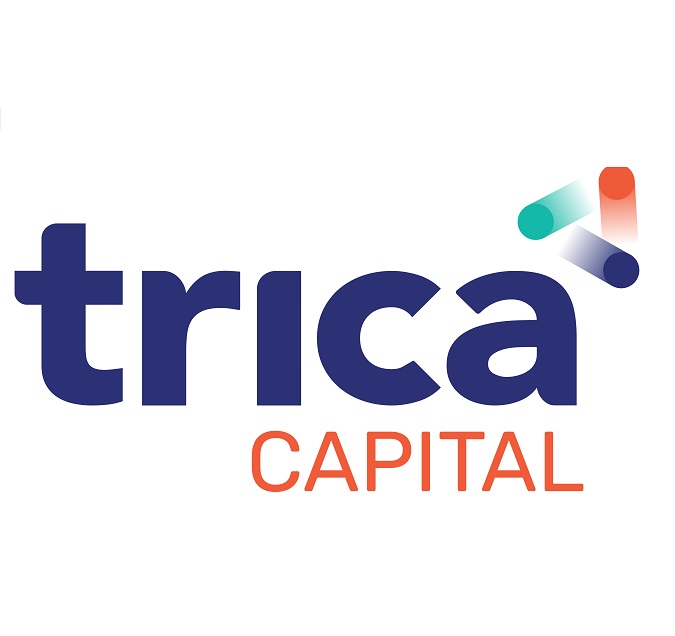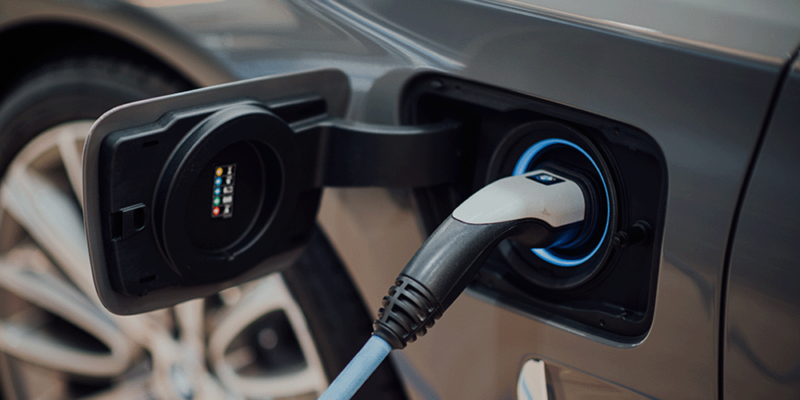
Charging it up
Which big company comes to your mind when you think of electric vehicles?
For many of us, the answer would be Tesla.
Over the years, Tesla has become the global leader in the electric vehicles segment. But what did it do right? The answer lies in the fact that Tesla has focused not only on building the cars but the entire e-mobility ecosystem, including the charging infrastructure. It has been able to solve challenges related to range-anxiety for its consumers.
In India too, Gurugram-based electric vehicle ride-hailing startup BluSmart has taken a similar full-stack approach where it focuses on building their entire ecosystem, including the charging infrastructure for their electric taxis.
Transitioning to electric mobility is one of the most crucial goals India is looking to achieve. At the moment, reports reveal that the Indian government is chasing an ambitious goal of ensuring 30 percent electric vehicle (EV) penetration for private automobiles, 70 percent for commercial vehicles, and 80 percent for two and three-wheelers, which would mean about 102 million EVs on the road by 2030.
If the goal is achieved, this transition will have a huge impact on social, economic, and environmental aspects of the country.
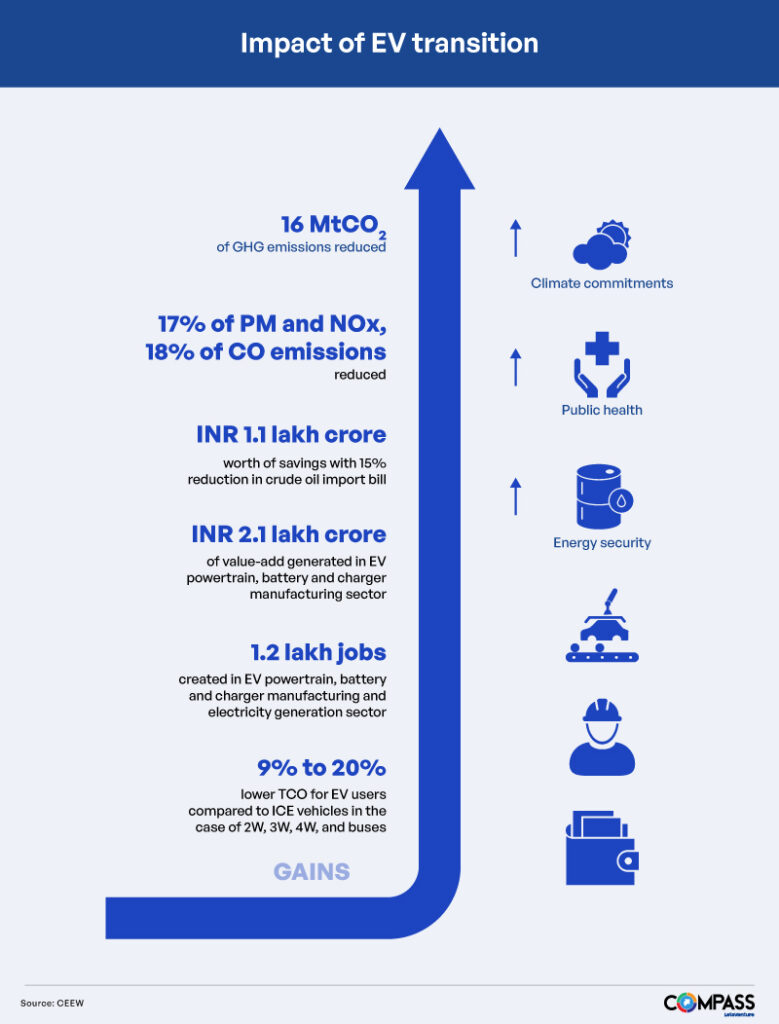
In order to meet the goal, India also needs to solve for its battery and charging infrastructure. India reportedly has 6,586 operational public EV charging stations as of March 2023, according to government data.
With more than 20 lakh EVs on the road, building a robust charging infrastructure is the need of the hour and offers a huge opportunity for both investors and startups. The government is also supporting the growth through favourable policies, most recently in March, Union Minister of Heavy Industries Dr Mahendra Nath Pandey sanctioned Rs. 800 crores under FAME India Scheme Phase II to PSU Oil Marketing Companies (OMC) including Indian Oil (IOCL), Bharat Petroleum (BPCL), and Hindustan Petroleum (HPCL) to set up 7432 public fast charging stations across India.
Charge Zone, a tech-driven EV charging infrastructure startup, is disrupting the growing market with its B2B and B2C charging services on both dedicated and opportunity based charging using smart-grid networks. Its main offerings include fast charging DC networks & battery swap stations, smart app for managing charging stations and cloud-based software for monitoring of the stations.
As of March, the startup claimed to have 3,000 charging points across more than 1,500 EV charging stations in operations or construction across 37 cities in India.
Now, Charge Zone is aimed toward establishing 1 million charging points by 2030.
Along with charging stations, battery swapping stations is also an alternative way where vehicles can swap their depleted battery with a charge once from the swapping stations. While this approach allows a much faster charging time, the challenge that emerges is battery standardization across vehicles.
Batteries form a crucial component of electric vehicles and producing them indigenously is a goal being realised by India. Bengaluru-based Log9 Materials is disrupting the battery segment with its RapidX series of batteries which has been designed to power electric vehicles in India and other tropical countries. According to the company, these fast charging EV batteries can operate in temperatures ranging from 40°C to 65 °C.
Log9 Materials is reportedly building the first made-in-India battery cell line for electric vehicles. The startup has claimed that the indigenous batteries will be able to reduce the overall cost by 40 percent and efficiency loss by 50 percent. It is also planning to expand its production through a new 1 Gigawatt hour facility in the near future.
The undeniable need for adopting sustainable technologies and its growing demand has been attracting investor interest in the segment. Data from the Electric Vehicles India – Feed Geo Report by Tracxn revealed that the Indian electric vehicle market raised a total of $1.6 billion across 106 rounds in 2022 making a 117 percent increase from $766 million across 106 rounds in 2021.
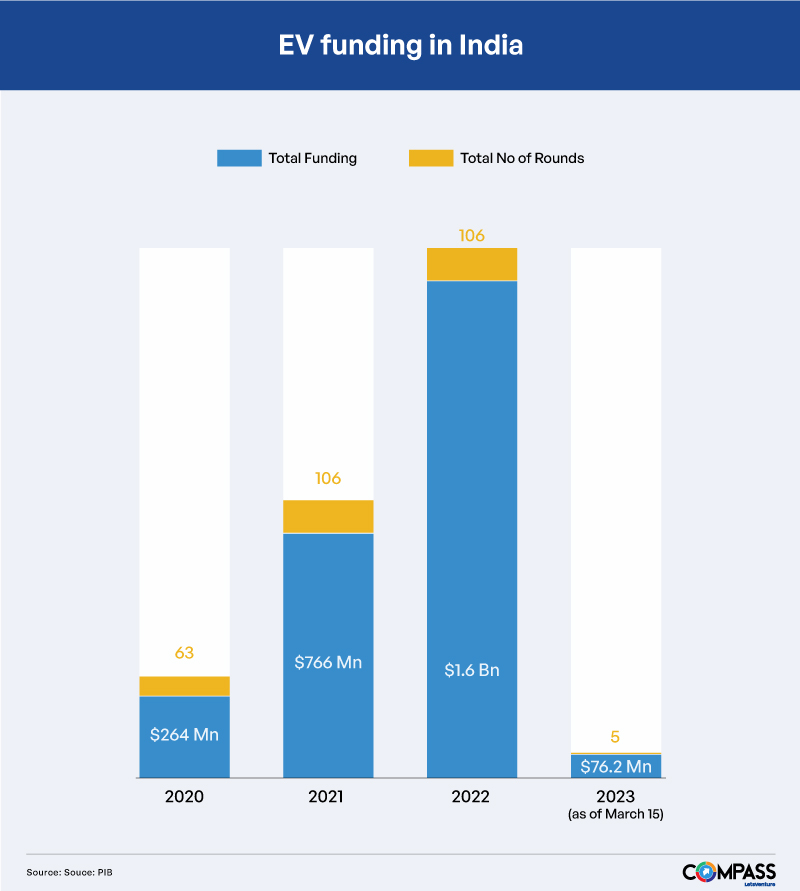

(Featured image: Unsplash)
